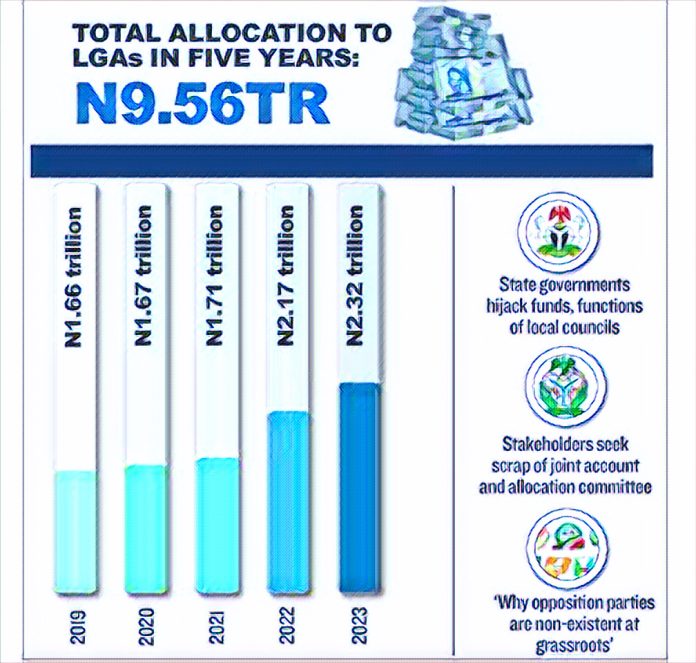Despite receiving an estimated N9.56 trillion from the federation account over the past five years, local governments in Nigeria continue to underperform in delivering basic services. This inefficiency persists even after a marked increase in earnings following the post-subsidy regime, The Guardian reports.
Across Nigeria’s 774 Local Government Areas (LGAs) and numerous Council Development Areas (LCDAs), with few exceptions, residents rarely experience the benefits of their council administrations. Essential services like basic education, health facilities, inner roads, and social infrastructure remain largely inaccessible or nonexistent.
Contrary to the often-cited excuse of insufficient funding, the primary challenges facing local governments include a lack of autonomy, states’ control over council funds, rampant corruption, and poor planning. Despite the sizeable federal allocations, these systemic issues hinder the effective delivery of services at the grassroots level.
A review of the Federal Allocation Account Committee (FAAC) documents published by the National Bureau of Statistics (NBS) reveals that from 2019 to 2023, the 774 local governments cumulatively received N9.56 trillion. This figure excludes Internally Generated Revenue (IGR) and other levies collected by local councils. Despite this, their performance remains unsatisfactory.
Stakeholders argue for the abolition of the state-local government Joint Account Allocation Committee (JAAC), advocating for funds to be sent directly to local governments. They also point out that state governments often compromise local government elections, allowing ruling parties to control all 774 local councils.
As the closest governance level to the people, local governments are constitutionally responsible for a range of functions, including the maintenance of roads, the provision of public conveniences, and the registration of births, deaths, and marriages. However, most states have established agencies to perform these roles, effectively usurping local government functions.
The Guardian’s investigation reveals that many states have divested local governments of responsibilities like refuse management and control of outdoor advertising, further diminishing their role.
Experts and stakeholders call for a fundamental reform of the local government system, emphasizing the need for total autonomy and effective governance at this level. They argue that only with genuine autonomy can local governments fulfil their constitutional mandate and deliver much-needed services to the grassroots.



